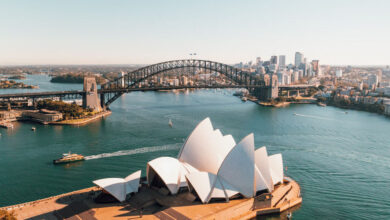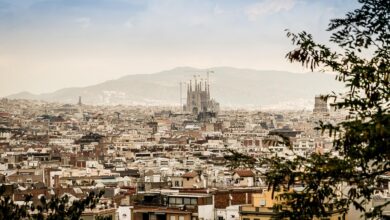Singapore is a small island city-state located in Southeast Asia that has become a leading global financial and transportation hub. Despite its small size, Singapore has made a big impact on the world stage, thanks to its innovative and progressive policies, strong economy, and vibrant culture.
One of the most impressive things about Singapore is its stunning transformation from a third-world country to a first-world nation in just a few decades. The government has implemented policies that have encouraged economic growth and innovation, and today, Singapore is home to a thriving financial sector, a thriving technology industry, and a bustling port that is one of the busiest in the world.
Singapore is also known for its strict laws and regulations, which have helped to create a clean and safe environment for its citizens. The country has a low crime rate, clean streets, and a thriving public transportation system that makes it easy to get around. Additionally, the government has implemented programs to promote sustainability, such as recycling and energy conservation, making it one of the greenest cities in the world.
Despite its modern and efficient infrastructure, Singapore has not lost touch with its rich cultural heritage. The city-state is home to a diverse population of ethnic Chinese, Malay, and Indian communities, each with its own unique customs and traditions. Visitors can explore the colourful neighbourhoods, visit the many temples and mosques, and sample the delicious street food that is a staple of Singaporean culture.
Singapore is also a hub for shopping, with everything from luxury boutiques to street markets and local shops. The city is home to several shopping centres, including Orchard Road, which is lined with designer shops, department stores, and local boutiques.
In conclusion, Singapore is a unique and fascinating city-state that offers something for everyone. Its thriving economy, clean and safe environment, diverse culture, and stunning architecture make it a must-visit destination for anyone interested in learning about the Asia-Pacific region. Whether you’re looking to do business, explore the city’s rich heritage, or simply relax and enjoy the many sights and sounds of this vibrant city, Singapore is an experience you won’t soon forget.
Best Time to Visit Singapore
The best time to visit Singapore largely depends on your personal preferences and the reasons for your visit. However, here are a few things to keep in mind when planning your trip:
- Weather: Singapore has a tropical climate with high humidity and temperatures that remain relatively consistent throughout the year. The best time to visit if you want to avoid the rain is from February to April, which is considered the dry season. However, this is also the busiest time of year for tourism, so it’s best to book your accommodations in advance.
- Festivals and events: Singapore is home to a number of festivals and events throughout the year, including the Chinese New Year, the Singapore Grand Prix, and the Mid-Autumn Festival. If you’re interested in experiencing one of these events, plan your trip accordingly.
- Crowds: Singapore is a popular tourist destination and can get quite crowded, especially during peak travel seasons. If you’re looking to avoid crowds, consider visiting during the week or outside of the peak travel months of June to August.
No matter when you visit, there’s always something to see and do in Singapore. From its rich cultural heritage and stunning architecture to its world-class shopping and dining, this city-state offers an unforgettable experience for visitors of all ages and interests.
Average Temperature in Singapore
Singapore has a tropical climate, with warm and humid weather throughout the year. The average temperature in Singapore ranges from around 25°C to 33°C (77°F to 91°F). There is little variation in temperature throughout the year, as the country is located near the equator. The high humidity levels can make it feel even warmer, so it’s important to stay hydrated and take advantage of the air-conditioned spaces when possible.
The wettest months in Singapore are typically November to January, while the driest months are from February to April. Despite the occasional rain shower, the sun is generally shining and the skies are clear for much of the year, making it a great destination for outdoor activities.
Credits
Photo: Bayfront Avenue, Marina Bay Sands Singapore, Singapore. Photo by: Robynne Hu on Unsplash



